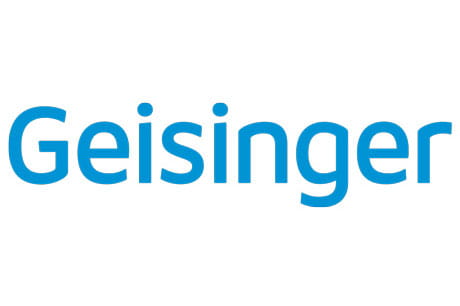Titin gene mutation carriers more likely to develop heart disease, research shows
In genomics-first approach, researchers at Geisinger and Penn examine health records to explore connection between mutations in the Titin gene and abnormal hearts
In a new study published today in Circulation, researchers at Geisinger and Penn Medicine reviewed the sequenced genes of more than 70,000 people, and found that people with these specific titin gene mutations were more than 10 times more likely to develop dilated cardiomyopathy. Heart failure and abnormal heart rhythms, which are commonly associated with dilated cardiomyopathy, were also more common. And, while only a small percentage of patients were diagnosed with dilated cardiomyopathy, the investigators also found subtle differences in the heart’s ability to pump efficiently compared to those without the mutation, suggesting a broader impact.
“We have known for a few years that titin mutations are one of the major genetic causes of dilated cardiomyopathy,” said the study’s co-lead author Christopher M. Haggerty, PhD, Assistant Professor in Geisinger’s Department of Imaging Science and Innovation. “But because there are many other people also carrying these mutations, it is difficult to know what the overall heart disease risk is; whether finding these genetic mutations in people without dilated cardiomyopathy can be useful for precision health. That’s why we took a genome-first versus disease-first look by combining our two large biobanks with genomic and health record data.”
“It’s clear that these gene mutations have a real effect on one’s heart, and yet, there are a lot of people carrying the deleterious mutations right now who are fine,” said the study’s co-senior author Zoltan Arany, M.D., PhD, a professor of Cardiovascular Medicine in the Perelman School of Medicine at the University of Pennsylvania. “While our study moves us one step closer to being able to predict, based on one’s genes, who will get this disease, there is still a difference between these two populations that we don’t yet understand. The next step will be to identify the specific variable causing some of these patients to get heart disease.”
The titin gene, which codes the body’s largest protein, acts as a spring inside the heart muscle and helps limit how much it can be stretched. Mutations in this gene – which affect about 1 percent of the population – are commonly found in people with dilated cardiomyopathy, when cardiologists order a genetic test to determine if the disease stems from a variant.
In this study, researchers sought to reverse this approach, and determine if pinpointing the mutations could predict whether people carrying the faulty genes would develop the disease. To do so, researchers reviewed the exome sequence data of more than 71,000 people – 61,040 from the Geisinger MyCode Community Health Initiative and 10,273 from the Penn Medicine BioBank – to identify individuals with the gene mutations. From there, they examined corresponding information, including diagnoses, imaging and test results – available via linked electronic health records – to determine whether the patients had heart disease or showed signs of declined cardiac function.
“Interestingly through this research, we also found that these genetic variants may confer different risk based on ancestry,” said Dr. Haggerty. “While people of European ancestry have much greater odds of developing dilated cardiomyopathy with a titin variant, the risk may not be as high in those of African ancestry. This was an unexpected finding and we do not know what may be causing these differences, but it will certainly be important to continue this research to learn more.”
Researchers found that patients with cardiomyopathy who have the mutations fare worse, even on treatment, than patients with the condition who don’t have a mutation. The finding, researchers say, underscores the prognostic value of ordering a genetic test for a patient who has been diagnosed with cardiomyopathy.
That said, Dr. Arany cautions against patients who don’t have heart disease undergoing genetic tests for titin variants.
“For now, I would not recommend people get genetic testing for the titin variants because that will just make them anxious for something that’s highly unlikely,” Arany said. “That may change. For example, if we find that the combination of a mutation in titin and a mutation in another gene causes people to get the disease, then we’d recommend genetic testing for both of the variants. But right now we still don’t know enough.”
This work was supported, in part, by grants from the National Institutes of Health (HL126797 and R01HL141901), the U.S. Department of Veterans Affairs (IK1-CX001780) and the U.S. Department of Defense (PR171741).
Additional Geisinger authors on the study include David J. Carey, Alicia M. Golden, Dustin N. Hartzel, Yirui Hu, Melissa A. Kelly, H. Lester Kirchner, Joseph B. Leader, Zachariah Nealy, Thomas N. Person, Arichanah Pulenthiran, Diane T. Smelser, Richard C. Stahl, Amy C. Sturm, Michael F. Murray, and Brandon K. Fornwalt.
The study can be viewed here.
About Geisinger
Geisinger is among the nation’s leading providers of value-based care, serving 1.2 million people in urban and rural communities across Pennsylvania. Founded in 1915 by philanthropist Abigail Geisinger, the non-profit system generates $10 billion in annual revenues across 134 care sites - including 10 hospital campuses, and Geisinger Health Plan, with 600,000 members in commercial and government plans. The Geisinger College of Health Sciences educates more than 5,000 medical professionals annually and conducts more than 1,400 clinical research studies. With 26,000 employees, including 1,600 employed physicians, Geisinger is among Pennsylvania’s largest employers with an estimated economic impact of $14 billion to the state’s economy. On March 31, 2024, Geisinger became the first member of Risant Health, a new nonprofit charitable organization created to expand and accelerate value-based care across the country. Learn more at geisinger.org or connect with us on Facebook, Instagram, LinkedIn and X.

